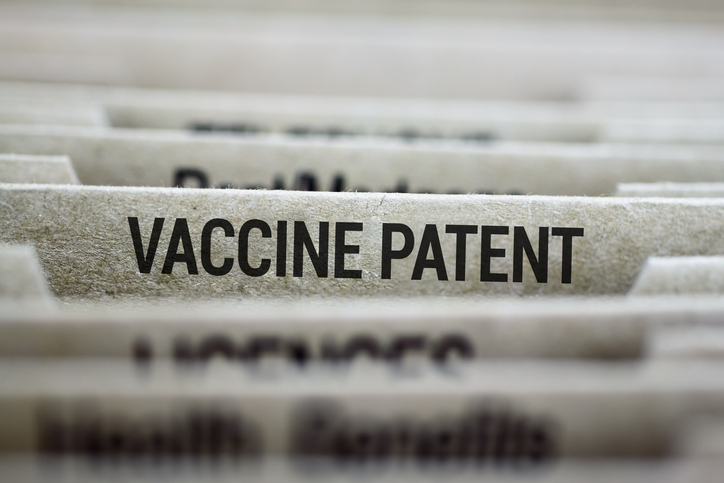President Joe Biden’s stunning decision to support waiving intellectual property protections for COVID-19 vaccines and therapies rekindled the debate over protecting IP rights and promoting access to life-saving medicines.
In early October, India and South Africa petitioned members of the World Trade Organization (WTO) to grant a sweeping waiver of IP rights for the duration of the pandemic so that poorer countries could more effectively contain the coronavirus. The member countries sought waivers on WTO rules governing patents, copyrights, industrial designs, and undisclosed information (trade secrets).
In requesting the WTO waiver, India and South Africa argued that “an effective response to the COVID-19 pandemic requires rapid access to affordable medical products, including diagnostic kits, medical masks, other personal protective equipment, and ventilators, as well as vaccines and medicines for the prevention and treatment of patients in dire need.” The countries added that “as new diagnostics, therapeutics, and vaccines for COVID-19 are developed, there are significant concerns, how these will be made available promptly, in sufficient quantities and at affordable prices to meet global demand.”
WTO members with well-developed pharmaceutical industries and a longstanding tradition of upholding the rule of law gave the request a cool response. The United States (then under the Trump administration), the EU, the UK, and other wealthier countries did not support an IP waiver.
One Compromise Not Pursued
Citing work by Jennifer Hillman of the Council on Foreign Relations, James Bacchus, professor of economics at the University of Central Florida and an adjunct scholar at the Cato Institute, notes that WTO rules allow for “compulsory licenses” to be issued in public health emergencies. Compulsory licenses can be issued to local manufacturers, authorizing them to make patented products or use patented processes even though they do not have the permission of the patent holder.
“Compulsory licensing is not popular with private drug manufacturers because it is a derogation from the customary workings of market-based capitalism,” Bacchus writes. But it is a “crucial part of the balance” the WTO struck “between IP rights and access to essential medicines,” Bacchus notes.
Bacchus writes that India and South Africa did not avail themselves of this option, choosing instead to pursue a broad patent waiver.
Biden’s surprise support for what is sometimes referred to as “patent busting” has earned him plaudits in certain quarters. The IP waiver was endorsed by delegates to an American Medical Association policy meeting in mid-June. And it has also triggered demands that the United States do more to make vaccine technology available to the world.
“The U.S. must also demand that pharma companies that received significant amounts of taxpayer funding to create these vaccines share the technology and know-how with other capable manufacturers to protect more people worldwide,” Doctors Without Borders said in a statement.
“A Source of Innovation”
However, the Biden administration’s move has failed to persuade other countries with vibrant pharmaceutical industries to support an IP waiver. The German government has been the most vocal in opposing the Biden-backed patent waiver, saying in a May 6 statement that it would have “significant implications” for vaccine production. The statement said the limiting factor in manufacturing vaccines is production capacity and quality control rather than patents.
“The protection of intellectual property is a source of innovation and must remain so in the future,” the statement said.
Germany is home to BioNTech, which teamed up with Pfizer to produce the first COVID-19 vaccine.
Another consideration, one with significant geopolitical implications, was raised by Luciana Borio and Scott Gottlieb in the Wall Street Journal.
“The proposal to suspend portions of the WTO’s agreement on intellectual property has long been sought by China as a way to pirate Western intellectual property legally,” the authors wrote. “Drugmakers can work exclusively with leaders in the European Union to put together a package that would address immediate and long-term needs of lower-income nations while continuing to protect intellectual property, which is vital to the future development of future vaccines and therapies.”
Bonner R. Cohen, Ph.D., (bcohen@nationalcenter.org) is a senior fellow at the National Center for Public Policy Research.
